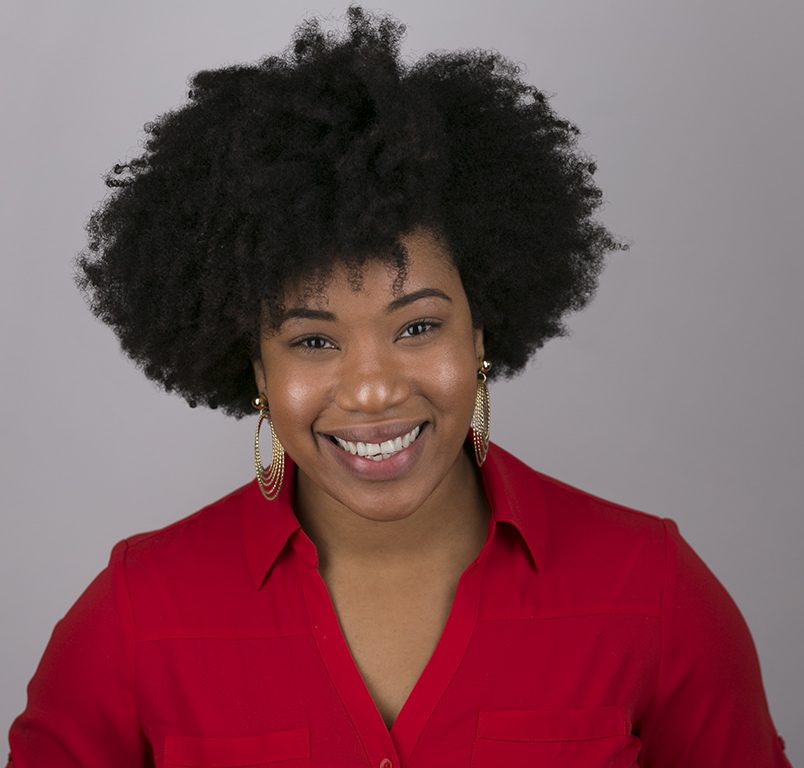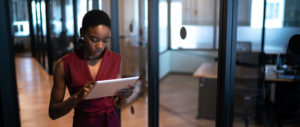
Education must never be a dirty word
Despite the abundance of benefits it could bring to wider society, prisoner education still remains a taboo subject, says James Tweed, the founder of digital learning company, Coracle


A Cuban-American master’s in entrepreneurship graduate on how Business School has helped her company to support minority-owned businesses
‘I felt like I was more equipped to become someone else’s CMO than my own CEO,’ says Leyanis Diaz, who launched her own company on the back of a distinguished set of experiences in communications.
When Leyanis enrolled at Business School, she said she, ‘felt like I had no support or help in building my business’. However, by the end of her programme, she says the experience was, ‘the best thing I could have done for myself and for the business’.
That business is Major Marketplace, a platform that aims to change the narrative regarding minority business enterprises (MBEs) by providing them with support, marketing services and brand growth.
Read on to learn more about Leyanis’ work, what she took from her time at Business School and why she believes Oprah Winfrey, ‘is a champion for women and for people of colour everywhere and an inspiration to us all’.
Can you tell us a little bit about your current role and what is involves?

I am the Founder of Major Marketplace, which connects small minority-owned businesses with those who want to support them. It is a unique programme that is on a mission to keep more minority businesses in business by showcasing their innovative and cutting-edge products to a global audience while providing them with the support, connections and education to scale.
Currently, I am a solo founder, which means I do it all: marketing, operations, customer service, human resources, sales, finance, and so on. But I love what I do, and I know that I am making an impact on those who need it most – minority businesses are the heart and soul of communities like the one I grew up in [in Miami, Florida].
Did your Business School experience help get your business off the ground? If so, how?
My Business School experience gave me the tool box I needed to run Major Marketplace. I started the company before attending University College London’s (UCL) School of Management master’s in entrepreneurship programme.
Before attending UCL School of Management, I felt lost and felt like I had no support or help in building my business. Enrolling in the entrepreneurship programme was the best thing I could have done for myself and for the business. The School gave me access to experts, advisors, mentors, resources, funding, support and a global network that I can tap into today and in the future.
What single piece of advice would you offer undergraduate and post-graduate students of business and management who plan to start their own companies after completing their studies?
You do not need to know it all and don’t be afraid to ask for help or to ask what you might think is a dumb question.
My background is in communications. During my undergraduate degree, I studied marketing, PR, television and radio and after graduating, I went on to work for companies such as Nike and Ford. While I was good at what I did, I did not know the first thing about business when I first started my own company. I felt like I was more equipped to become someone else’s CMO than my own CEO.
When I first started, I spent a lot of my time focusing on what I did not have instead of what I did have. [I now appreciate the importance of] understanding what your strengths are and more importantly, what your weaknesses are so you can build a team around you to fill those gaps and seek the help that you need when you need it with more clarity.
Mentorship schemes in business are becoming increasingly popular. Who would have been your dream mentor when you were at the outset of your career and why?
My dream mentor has always been Oprah Winfrey because she is everything I am working to be, a media maven, a philanthropist, an activist, and a businesswoman. She faced many trials and tribulations during her childhood and early on in her career as a black woman in media, but she had a choice to make, she could give up and go home, or keep going and face her obstacles head on.
She did the latter and became the person we all know and love. Today, she is a champion for women and for people of colour everywhere and an inspiration to us all. With Oprah as my mentor, I would have grown as both an individual and as a businesswoman.
What are some of the challenges and opportunities you’re currently facing as a leader?
As a leader, some of my current challenges include being a solo founder and managing my time effectively, filtering through the advice and feedback I receive, and managing my expectations and the expectations of others.
However, my opportunities include graduating from a world-leading university, my background and perspective as a Cuban-American immigrant and as a woman of colour, and the relationships I have made through my work in the community.
Please outline the importance of corporate social responsibility (CSR) to your company’s strategy and why you feel it is important to business approaches as a whole today.
CSR is of great important to Major Marketplace. Corporations’ ability and desire to support initiatives, projects and businesses that align with their interests and values and that have an impact are both interesting and potentially fruitful for us.
CSR is important to business approaches as a whole today because our companies have an effect and influence on people and our planet. To me, CSR is about understanding that what you do has consequences, whether they are good or bad, and about trying to do right by others not because it makes you look good but because you care.
Which three words best describe your approach to leadership (or your management style) and why?
The three words that best describe my approach to leadership are ‘transparency’, ‘empowerment’ and ‘collaboration’.
‘Transparency’ because as the Founder of Major Marketplace, I have to be honest with my team, the minority businesses we work with, and our partners, customers and other stakeholders.
‘Empowering’ because I have to empower those I work with, so they can empower and encourage minority businesses that, in turn, empower their communities.
‘Collaborative’ because I know that there is no ‘I’ in team. In order for us to make the biggest impact on the world, we have to work with others who understand what we are building and are passionate about building a better future together.
Leyanis Diaz is the Founder of Major Marketplace, an online marketplace that works to support minority-owned businesses by providing them with education, merchandising, and connections to a global audience. An extended version of this interview has previously been published on Medium.

Despite the abundance of benefits it could bring to wider society, prisoner education still remains a taboo subject, says James Tweed, the founder of digital learning company, Coracle

Is being a startup executive really that different from being a manager or director? Yes, but probably not in the ways you think, says the author of ‘Lead Upwards’, Sarah Brown

Legal structure, documentation and intellectual property. Solicitor and ‘entrepreneur in residence’, Michael Buckworth, looks at three areas that all startup founders need to get right
For questions about editorial opportunities, please contact:

